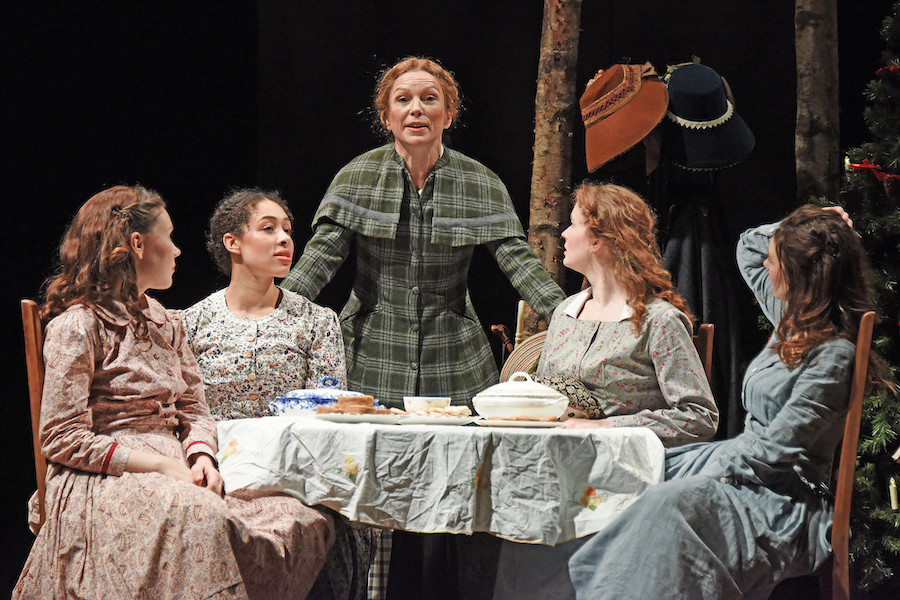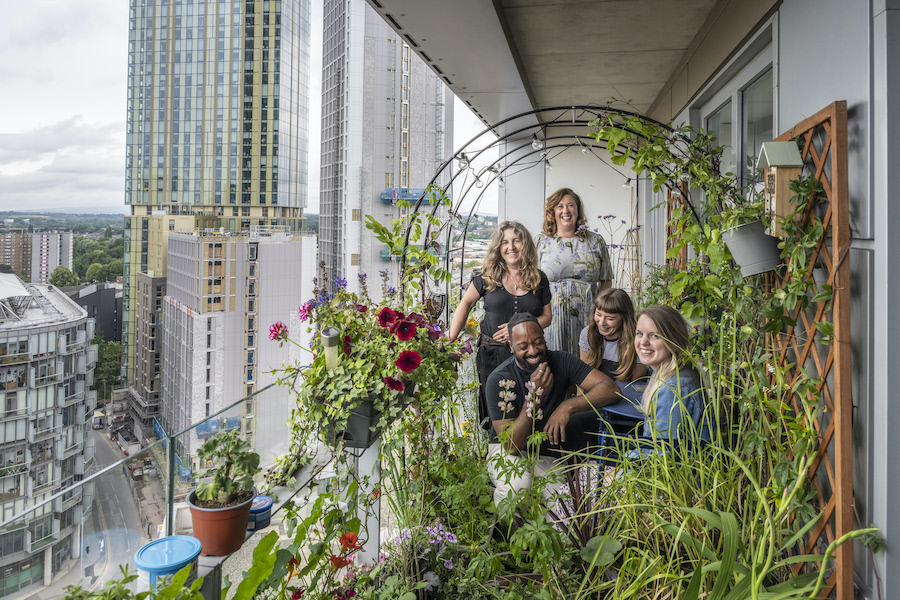The hidden Shakespearean garden in Greater Manchester where you can experience Edwardian England
- Written by Thom Bamford
- Last updated 11 months ago
- Community, Featured, History
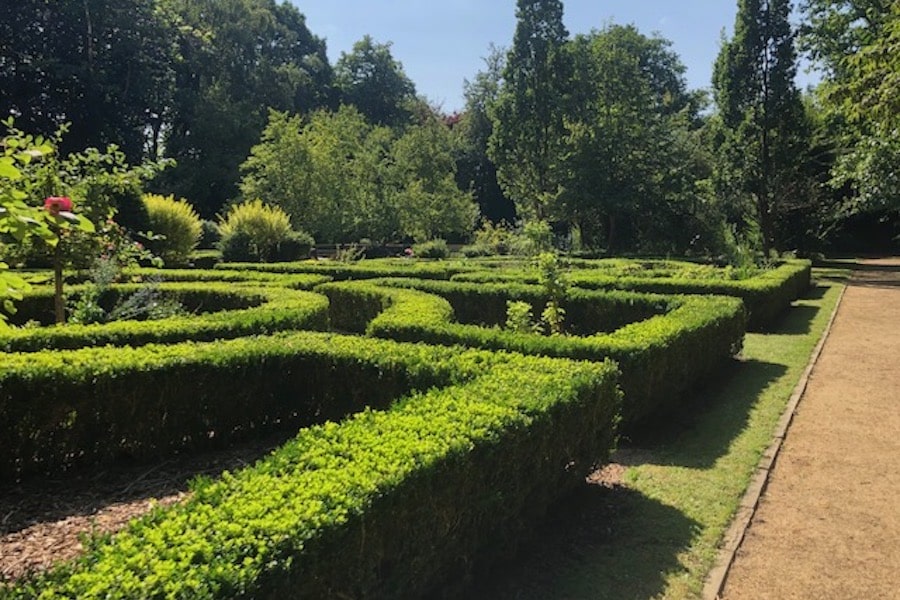
Nestled within Platt Fields Park, lies a hidden gem, a secret haven that whispers tales of history and literary allure.
Established in 1922, this sunken, walled garden stands as one of the few remaining public Shakespearean Gardens in the world, offering a serene retreat where visitors can immerse themselves in the flora and atmosphere of Elizabethan England.
With strong links to the suffrage movement and Edwardian Manchester society, the garden opened in 1922 and was rescued from near obscurity over three years by volunteers.
Few public Shakespearean Gardens remain worldwide.
Platt Fields Park’s Shakespearean Garden
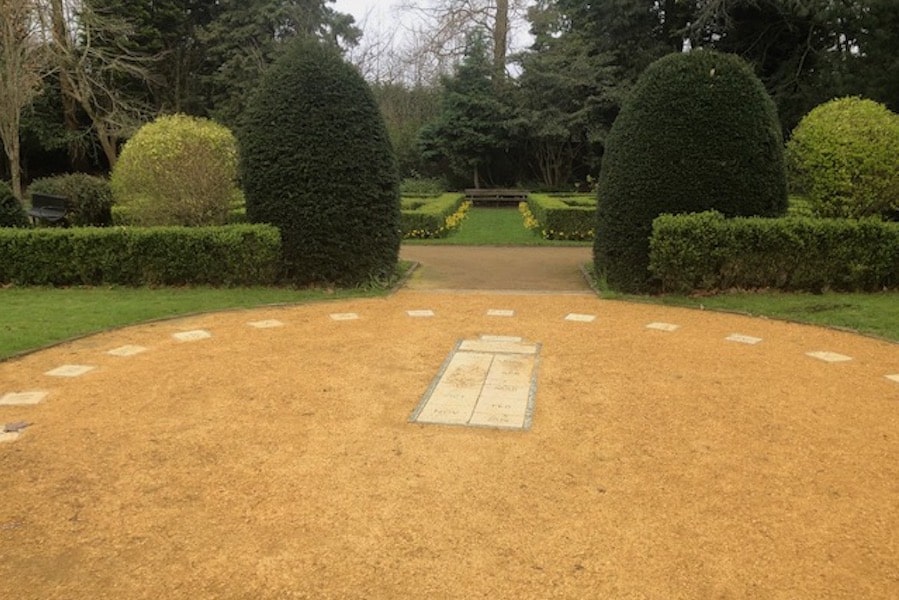
The concept of a Shakespearean Garden was first conceived in Victorian England, with the aim of cultivating gardens filled with the trees, flowers, and plants mentioned in William Shakespeare’s works.
The garden features a selection of flora, with many of the 175 plant species referenced in Shakespeare’s plays and poems.
The garden’s layout and features
Set within the tranquil confines of Platt Fields Park, this garden is a secluded spot reminiscent of a secret garden. Its design is both simple and elegant, divided into four rectangular quadrants by neat paths.
Each quadrant is carefully organised, reflecting the formal style characteristic of Tudor gardens.
Knot Garden: This section features a traditional Elizabethan knot garden, primarily planted with native species and reminiscent of its namesake.
Performance Area: Here, visitors can enjoy a wonderful human sun clock made of Portland stone, recently installed to add an interactive element to the garden.
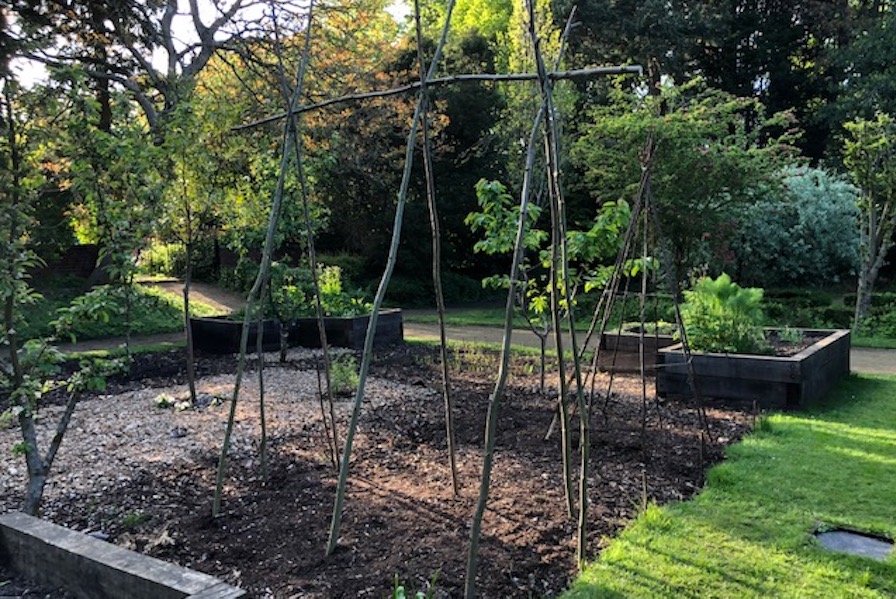
Vegetable and Orchard Section: This area boasts a variety of heritage vegetables and apple trees, connecting visitors with the agricultural practices of Shakespeare’s time.
Lawn and Hornbeam Arches: A spacious lawn area, accessible through two clipped hornbeam arches, provides a perfect spot for relaxation and reflection. The lawn has just been sown so will take several months to become established so people can’t walk on the area just yet.
A Legacy of cultural and Social Significance
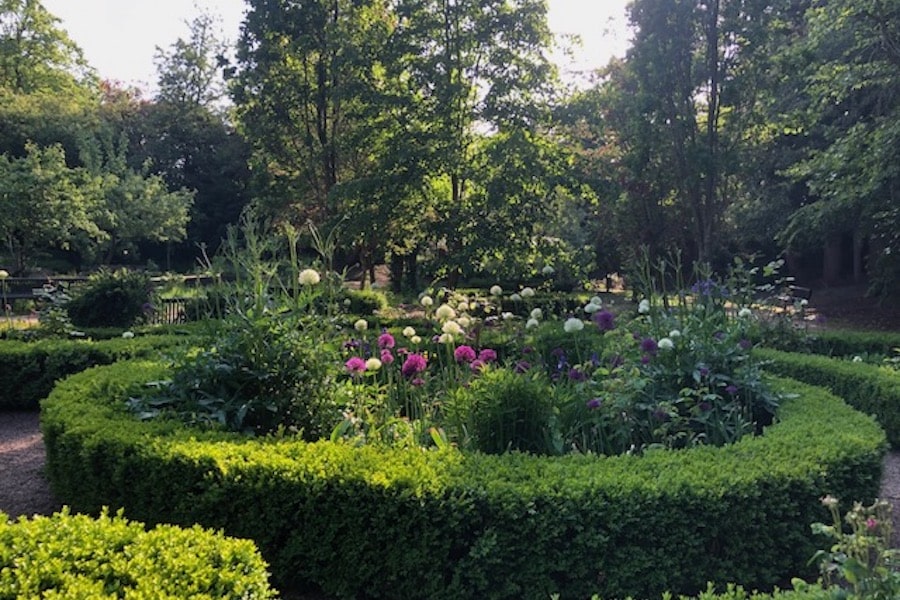
The creation and preservation of this garden are deeply intertwined with Manchester’s history, particularly the suffrage movement and Edwardian society.
Rosa Grindon, a remarkable woman and avid botanist, was inspiration behind the garden.
Rosa, who described herself as a suffragette in the 1911 census, later embraced the suffragist movement, advocating for peaceful change.
Her philanthropic efforts extended beyond activism; she also contributed to local cultural enrichment, including the creation of a Shakespearean stained glass window in the Central Reference Library.
Under Rosa’s guidance (Rosa was the Chair of the Tercentenary Committee), the Shakespeare Tercentenary Committee in 1916 embarked on ambitious projects, including the establishment of a Shakespearean border at Whitworth Park.
Although some of these early endeavours faded into obscurity, they laid the groundwork for subsequent gardens like the one in Platt Fields Park.
Revival and preservation
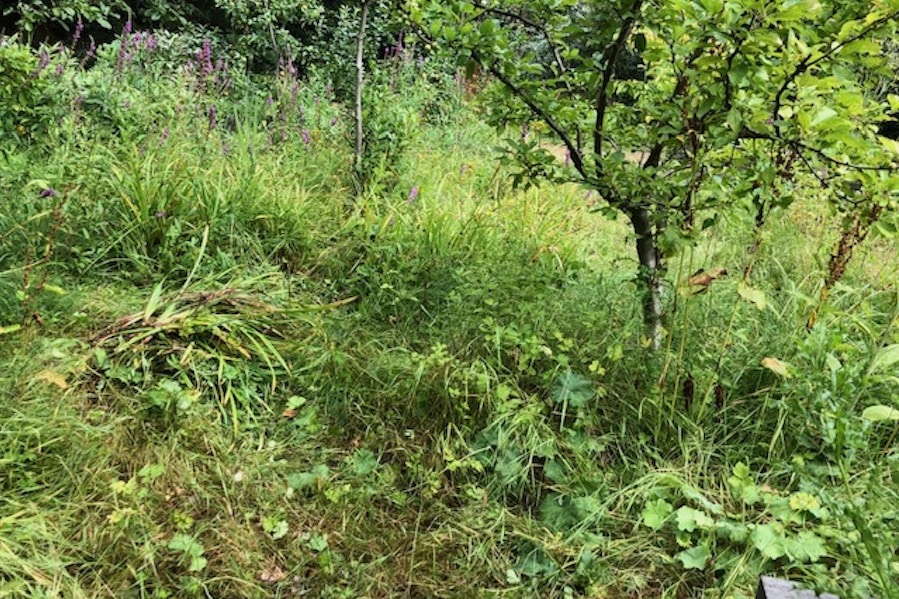
In recent years, the Shakespearean Garden at Platt Fields Park faced near obscurity but was rescued through the dedication of volunteers over a three-year period.
These passionate individuals have worked tirelessly to restore the garden to its former glory, transforming it into a vibrant cultural hub.
Kattie Kincaid, the project lead, sat down with I Love MCR to talk about the efforts to bring the garden back to life.
She said: “Through our ongoing efforts, we are making trying to bring the garden back to its former glory, so everyone can enjoy this wonderful thing on our doorstep.
“Set within Platt Fields Park, this sunken, walled garden is in a glorious, secluded spot; a real-life secret garden.
“By sharing the garden’s story and inviting the public to experience its magic firsthand, we’re ensuring that its legacy continues to thrive for generations to come. It’s a true diamond in the rough, waiting to be discovered and cherished by all who visit.”
Kattie and the team want to create a space for theatre performances, community gatherings, and educational programs, and breathing life into the park.
Previously on the garden’s centenary celebration, an acting troupe performed Shakespeare’s works. The event was a huge success, and Kattie said she would love to see more performances in the area.
What kind of plants are in The Shakespearean Garden
The garden boasts an impressive collection of plants, many of which are native British species mentioned in Shakespeare’s works.
This includes heritage varieties of roses, like musk roses, which evoke the essence of Elizabethan gardens.
The vegetable patch features heirloom varieties such as skirret and rampion, offering a taste of medieval culinary traditions.
Among the garden’s more unusual specimens is the medlar tree, reflecting Shakespeare’s tendency to incorporate lesser-known flora into his writing.
The garden’s flora not only enhances its historical authenticity but also offers visitors a deeper understanding of the botanical landscape of Shakespeare’s time.
What do they have planned for the future?
The transformation of the garden has created a sense of community and safety, reclaiming the space from disrepair and antisocial behavior.
However, maintaining such a space comes with financial challenges, especially with limited resources and reliance on volunteer labour.
Regular funding from the council would provide much-needed stability, ensuring the garden’s continued maintenance and enhancement.
Kattie said: “The financial challenges of maintaining such a space, especially with limited resources and reliance on volunteer labor, are undoubtedly significant. However, this place is so special, we are committed to preserving it. It’s a real hidden treasure.
“Looking ahead, the prospect of regular funding from the council would undoubtedly provide much-needed stability and ensure the garden’s continued maintenance and enhancement.”
The team have plans to restore historical elements like the Cathedral Arch and Nico Ditch into the garden’s narrative further enriches the visitor experience.
The National Garden Scheme open day
On the 6th and 7th of July, The Shakespearean Garden, Platt Fields Park is holding an open day to raise funds for the National Garden Scheme, a project that has been instrumental in enabling them to breathe life into the Shakespearean Garden.
Kattie Kincaid, project lead for Shakespearean Garden in Platt Fields said: ” “We are thrilled to announce our participation in the National Garden Scheme Open Day, scheduled for the 6th and 7th of July.
“While our garden is typically open to visitors, this special weekend entails a nominal fee of £5 per person, with all proceeds directly benefiting the National Garden Scheme and its charitable endeavours.
“For this exclusive event, our garden will be in tip top condition and we hope it will be a really enjoyable and interesting day. Visitors will be able to buy hot and cold drinks and a range of delicious homemade cakes. We’ll also have information boards and leaflets explaining some of the garden’s main features’
“Weather permitting, the garden will be adorned with our striking suffragette-coloured bunting and there may be one or two interesting stalls lending a fete like atmosphere to the occasion.
“Additionally, there will be charming stalls offering various items for sale. Weather permitting, the garden will be adorned with our striking suffragette-coloured bunting, lending a festive atmosphere to the occasion.
“This event serves as a token of our gratitude to the National Garden Scheme for their incredible support.
“Their generous grant has played a pivotal role in enhancing one of the garden’s quadrants, further enriching the visitor experience. We cordially invite you to join us for what promises to be a truly memorable and rewarding event.”
You can book a ticket by clicking here
You can find out more about The Shakespearean Garden, Platt Fields Park by clicking here
- This article was last updated 11 months ago.
- It was first published on 31 May 2024 and is subject to be updated from time to time. Please refresh or return to see the latest version.
Did we miss something? Let us know: press@ilovemanchester.com
Want to be the first to receive all the latest news stories, what’s on and events from the heart of Manchester? Sign up here.
Manchester is a successful city, but many people suffer. I Love Manchester helps raise awareness and funds to help improve the lives and prospects of people across Greater Manchester – and we can’t do it without your help. So please support us with what you can so we can continue to spread the love. Thank you in advance!
An email you’ll love. Subscribe to our newsletter to get the latest news stories delivered direct to your inbox.
Got a story worth sharing?
What’s the story? We are all ears when it comes to positive news and inspiring stories. You can send story ideas to press@ilovemanchester.com
While we can’t guarantee to publish everything, we will always consider any enquiry or idea that promotes:
- Independent new openings
- Human interest
- Not-for-profit organisations
- Community Interest Companies (CiCs) and projects
- Charities and charitable initiatives
- Affordability and offers saving people over 20%
For anything else, don’t hesitate to get in touch with us about advertorials (from £350+VAT) and advertising opportunities: advertise@ilovemanchester.com


The Manc aerobics queen who trained the Corrie cast is helping raise charity cash

Ancoats to get even cooler as independent market set for MOT garage site

“Manchester is not Britain’s second city, it’s the first” – Jeremy Clarkson










